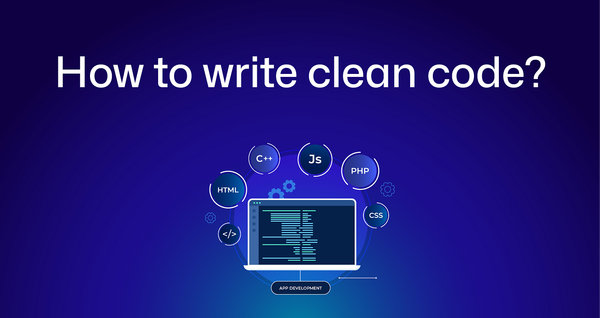Python Quest: Learn Programming with Fun Puzzles
Learning programming can be daunting, especially for beginners. But what if you could turn this learning process into a fun and engaging game? Introducing Python Quest: Code Masters, a game designed to teach basic Python programming skills through interactive puzzles and strategic missions. Whether you're a beginner or someone with a bit of programming knowledge, this game has something for you. Let's dive into the details!
Game Concept Overview
Python Quest: Code Masters comes in two exciting versions: a Puzzle version and a Strategy version. Both versions use multiple-choice game mechanics and offer a choice between real-world and sci-fi storylines to keep players engaged.
Example Puzzle Levels:
Level 1: Variables and Data Types
Scenario: You're tasked with creating a simple program to store and display employee names at a tech company.
# Store employee name
employee_name = _____
# Print the employee name
print(_____)Options:
- "Alice", employee_name
- employee_name, "Alice"
- "Alice", "Alice"
- print("Alice"), print(employee_name)
Correct Answer: 1. "Alice", employee_name
Feedback: Correct! You successfully stored and printed the employee name.
Level 2: Loops
Scenario: As a tech company intern, you need to generate a list of employee IDs.
# Generate a list of employee IDs
employee_ids = []
for i in range(1, 6):
employee_ids.append(_____)
print(employee_ids)Options:
- i
- i + 1
- "ID_" + str(i)
- employee_ids[i]
Correct Answer: 3. "ID_" + str(i)
Feedback: Correct! You successfully generated a list of employee IDs: ['ID_1', 'ID_2', 'ID_3', 'ID_4', 'ID_5'].
Level 3: Conditionals
Scenario: You need to write a program to check if an employee is eligible for a bonus.
# Check employee bonus eligibility
years_worked = 4
if years_worked > _____:
print("Eligible for bonus")
else:
print("Not eligible for bonus")
Options:
- 2
- 3
- 5
- 1
Correct Answer: 2. 3
Feedback: Correct! Employees who worked more than 3 years are eligible for a bonus.
Level 4: Functions
Scenario: You need to write a function to calculate the yearly salary of an employee.
# Calculate yearly salary
def calculate_salary(hourly_wage, hours_per_week):
weekly_salary = hourly_wage * hours_per_week
yearly_salary = weekly_salary * _____
return yearly_salary
print(calculate_salary(20, 40))Options:
- 50
- 52
- 48
- 40
Correct Answer: 2. 52
Feedback: Correct! There are 52 weeks in a year, so the yearly salary is calculated based on that.
Example Strategy Missions:
Mission 2: Efficient Sorting
Scenario: As the commander of a spaceship fleet, you need to sort a list of supply weights to load them efficiently.
# Sort supply weights
def sort_weights(weights):
for i in range(len(weights)):
for j in range(i + 1, len(weights)):
if weights[i] > weights[j]:
weights[i], weights[j] = weights[j], weights[i]
return weights
supplies = [4, 2, 9, 1]
print(sort_weights(supplies))Options:
- Bubble Sort
- Selection Sort
- Insertion Sort
- Merge Sort
Correct Answer: 1. Bubble Sort
Feedback: Well done! You used Bubble Sort to efficiently sort the supply weights.
Mission 3: Pathfinding Algorithm
Scenario: Navigate your fleet through an asteroid field using the shortest path algorithm.
# Find shortest path
def shortest_path(graph, start, end, path=[]):
path = path + [start]
if start == end:
return path
shortest = None
for node in graph[start]:
if node not in path:
newpath = shortest_path(graph, node, end, path)
if newpath:
if not shortest or len(newpath) < len(shortest):
shortest = newpath
return shortest
graph = {'A': ['B', 'C'], 'B': ['C', 'D'], 'C': ['D'], 'D': []}
print(shortest_path(graph, 'A', 'D'))
Options:
- Dijkstra's Algorithm
- A* Algorithm
- Depth-First Search
- Breadth-First Search
Correct Answer: 3. Depth-First Search
Feedback: Excellent! You used Depth-First Search to navigate through the asteroid field.
Mission 4: Resource Allocation
Scenario: Allocate resources to different parts of your spaceship based on their needs.
# Allocate resources
def allocate_resources(resources, needs):
allocation = {}
for need in needs:
if need in resources:
allocation[need] = resources[need]
else:
allocation[need] = 0
return allocation
resources = {'water': 100, 'food': 50, 'fuel': 200}
needs = ['water', 'fuel', 'oxygen']
print(allocate_resources(resources, needs))Options:
- for need in needs
- for resource in resources
- if need in resources
- if resource in needs
Correct Answer: 1. for need in needs
Feedback: Great job! You correctly allocated resources based on the spaceship's needs.
Conclusion
Python Quest: Code Masters is an innovative way to learn Python programming through engaging puzzles and strategic missions. Whether you're a beginner or have some programming knowledge, this game will help you strengthen your skills while having fun. Stay tuned for more updates and get ready to embark on your coding adventure!




